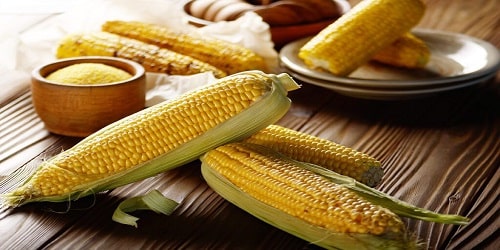Corn is one of the basic ingredients in the diet of millions of people and people with celiac disease do well to ask themselves a question on which their health depends. Does corn contain gluten?
Corn is one of the most versatile ingredients in the world, and there are endless recipes with corn. If we suffer from any type of disease or intolerance related to gluten, should we be careful? Let’s see it.
What is corn
Corn, or Zea mays, is a grass that has evolved from teosinte ( Zea perennis ) and whose origin is on the American continent. Its domestication probably began about 12,000 years ago, although it arrived in Europe in the 16th century. Corn is a golden grain cereal that has been a pillar in the diet of numerous civilizations around the world, especially in Latin America. This food is prized not only for its sweet flavor but also for its wide range of uses in cooking and industry, where it has a multitude of culinary roles.
There are a multitude of varieties of corn: from the striking multicolored corn, or rainbow corn, to mealy corn, which is ideal for grinding, to crystal corn or blue corn, among others. In addition to these types, there are even more local varieties and adapted breeds of corn, so there is not just one “corn”, but many.
What is gluten
As we have seen on numerous occasions already, gluten is what is known as a set of proteins found mainly in the crust of cereals such as wheat, barley, and rye, of which the most famous are gliadin and glutenin. Gluten, despite its protein nature, has no nutritional value, since it is not assimilable.
We can find gluten in a lot of foods due to its culinary properties: gluten provides elasticity and sponginess to breads and doughs, making them more appetizing. Beyond the texture, gluten does not provide flavor or other characteristics, although this does not diminish the importance of the organoleptic sensation it provides to the finish.
Does corn contain gluten?
It is not difficult to discover that corn, in fact, does not have gluten by itself. However, that does not mean that we cannot find it when taking it. How is that possible?
This normally makes it a safe option for many people looking for alternatives free of this substance: patients with celiac disease or diseases caused by gluten intolerance. But, as is often the case, there are nuances to consider .
Cross-contamination
As with oats, which also do not have gluten on their own, it turns out that cross-contamination with wheat or barley is so common that it is not uncommon to find this substance in corn products.
This occurs when corn comes into contact with other cereal grains, or during flour processing, or even during storage or transportation. This means that, although corn does not contain gluten, it is important to consider products with a ” gluten-free ” label to ensure the quality of the product against cross-contamination.
Gliadin-like prolamin: zein
Cereals have certain special proteins in their grains that provide structure and reserve substances for the seedling: prolamins. In the case of wheat and barley, these prolamins are, among others, the gliadin and glutenin of gluten. When we talk about wheat we find zeins, for example. Zeins are the most abundant reserve proteins, constituting approximately 50% of the total proteins present in the grain endosperm.
These zeins, although they are not identical to gluten and generally do not cause the same adverse reactions in people with celiac disease, they can cause similar disorders in certain people with high sensitivity. In general, zeins are not usually problematic for humans, although extraordinary cases of adverse reactions can occur.
Does corn flour have gluten?
We have already explained that corn flour, derived directly from the grain, is also gluten-free in its natural state. But, as with whole corn, the risk of cross-contamination in production is an important factor to consider. Therefore, it is important to choose corn flour labeled “gluten-free” to avoid any risk, although this is a somewhat debated topic, since this labeling can be used to overprice the same product with purely marketing intentions.
Does cornstarch contain gluten?
As with corn flour, starch, a common ingredient in baked goods and thickeners, is another derivative that is naturally gluten-free. In fact, due to its processing, it is more complicated for cross-contamination to occur and, normally, it can be consumed without concern, although caution never hurts.
Can celiacs eat corn?
The short answer is yes, celiacs can generally enjoy corn and its derivatives without fear of the effects of gluten. However, it is always prudent to check the labeling to ensure that the product is truly gluten-free and has not been contaminated during processing.
In summary, corn is a valuable ally in the gluten-free diet, but vigilance is essential, especially for those with celiac disease. Cross-contamination, in the case of corn, is the main reason for being careful with products derived from this cereal. However, with the right minimum precautions, corn can still be a safe and delicious staple in gluten-free cooking.
